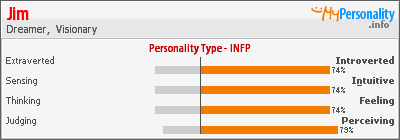We know the story. Jesus crucified by Roman law, suddenly is present to the apostles. And he is experienced by a lot of others. John-Mark and Luke, writing in the Acts, Paul, and Peter elsewhere, catalogue witnesses. Which makes sense as the apostles, and Paul take the proclamation of Resurrection and lay the foundation for the Jesus movements now and over 2,000 years.
What of us? Are we witnesses to the event? Men and women died under Roman tortures affirming that they were witnesses. What of us, what of me?
I suppose one weakness of catholic worship, be it Lutheran, Roman, Orthodox, or Anglican is that it can become a bit formulaic. We go to mass, we say the creed, we eat, and we are done. Have we seen the risen Jesus? The answer may be dependent on how we experience the event and the divine person. Do we expect some sort of miracle, an apparition, a weeping statue? If we do, we may be disappointed, or face a great deal of skepticism.
What of that formula? It does not offer any startling event: no speaking statue, no lightening, we must look somewhere else. When we offer ourselves, our offerings, and our prayers of thanks, we may ( I do ) experience the resection. Yes the central act of resurrection is present when the priest blesses the bread and wine, and we eat and drink. So our weakness is our strength.
But this year, we cannot go to the mass, we cannot eat or drink together. This year, this Easter, we need to proclaim our experiences over 2,000 years. We need to do that because that is what calls us to charity, service, and renewed lives. It is resurrection that leads us to relevance.
So can we do that without a big church, a major crowd? Sure, Paul did, Peter did, it is as we affirm our experience and offer our love and support, not as we have a big event, that the quiet love of God comes to us. I mean no disrespect to choirs, buildings, or music, but we may do it better this year.
Happy Easter!
What of us? Are we witnesses to the event? Men and women died under Roman tortures affirming that they were witnesses. What of us, what of me?
I suppose one weakness of catholic worship, be it Lutheran, Roman, Orthodox, or Anglican is that it can become a bit formulaic. We go to mass, we say the creed, we eat, and we are done. Have we seen the risen Jesus? The answer may be dependent on how we experience the event and the divine person. Do we expect some sort of miracle, an apparition, a weeping statue? If we do, we may be disappointed, or face a great deal of skepticism.
What of that formula? It does not offer any startling event: no speaking statue, no lightening, we must look somewhere else. When we offer ourselves, our offerings, and our prayers of thanks, we may ( I do ) experience the resection. Yes the central act of resurrection is present when the priest blesses the bread and wine, and we eat and drink. So our weakness is our strength.
But this year, we cannot go to the mass, we cannot eat or drink together. This year, this Easter, we need to proclaim our experiences over 2,000 years. We need to do that because that is what calls us to charity, service, and renewed lives. It is resurrection that leads us to relevance.
So can we do that without a big church, a major crowd? Sure, Paul did, Peter did, it is as we affirm our experience and offer our love and support, not as we have a big event, that the quiet love of God comes to us. I mean no disrespect to choirs, buildings, or music, but we may do it better this year.
Happy Easter!





2 comments:
I don't know if this Easter was better for everyone, but maybe it made us appreciate the sacrifice Jesus made a little bit more as we had more time to reflect on the Easter blessing.
Christal,
Sometimes having to seek an essential center leads us on a journey of discovery.
Post a Comment